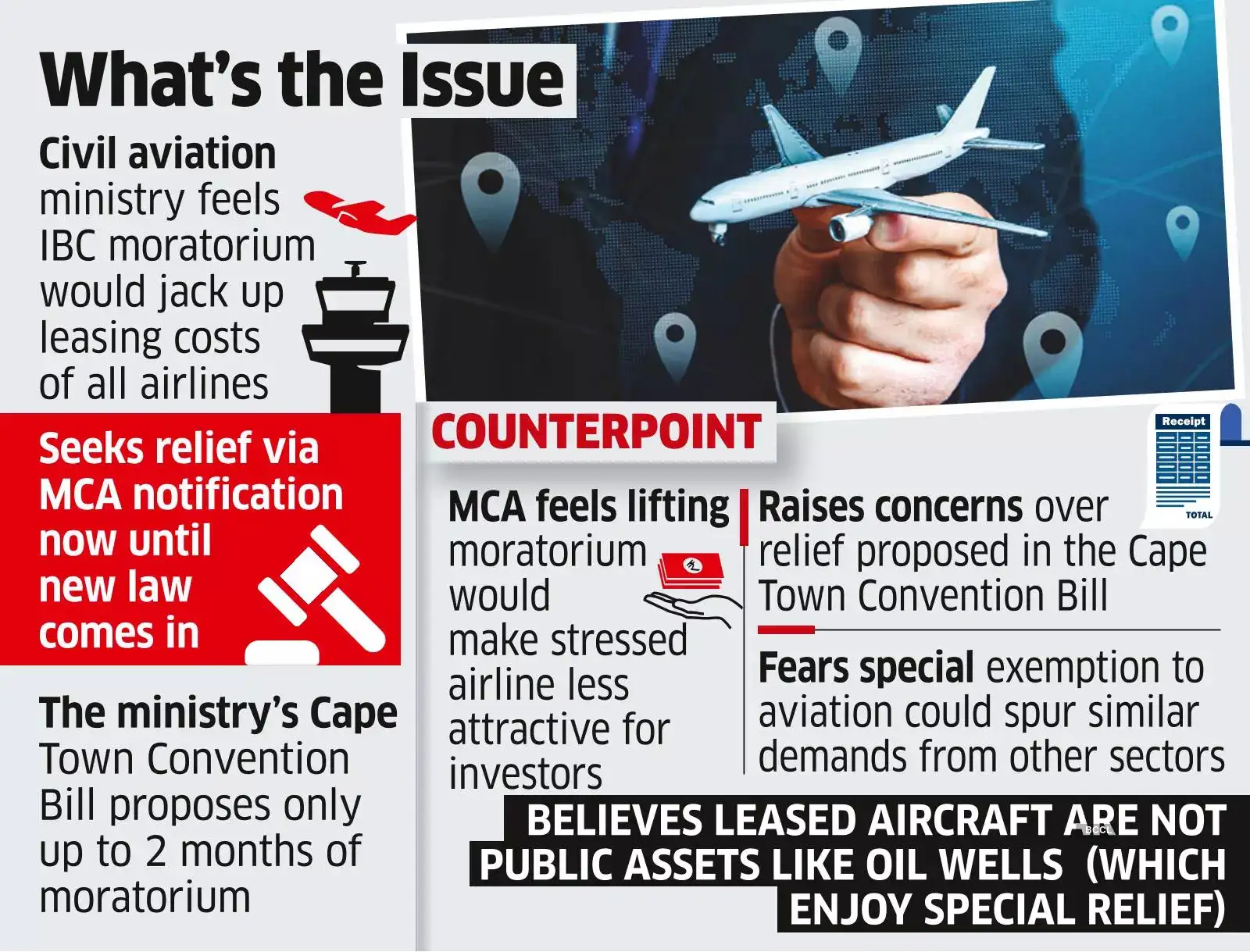Under the Insolvency and Bankruptcy Code (IBC), once resolution proceedings are initiated, the transfer or disposal of assets of the stressed firm is effectively barred through a moratorium. The issue has come to the fore after Wadia-owned Go First declared voluntary bankruptcy in May.
The civil aviation ministry has reasoned that such a moratorium could inflate leasing costs for all carriers, as global lessors would build such a risk into pricing, one of the persons told ET.
It has proposed an asset moratorium exemption for airlines through a notification by the Ministry of Corporate Affairs (MCA), he added.
The MCA has opposed this on the ground that any dilution of the moratorium clause would dissuade potential investors from submitting resolution plans for an insolvent airline, or at least make the stressed firm less attractive, said another person.
Moratorium exemption would allow lessors to repossess aircraft, denting the chances of the airline taking to the skies again. Cape Town Convention Bill
The MCA is also worried that an exemption for aviation could spur similar demands from other sectors, undermining the insolvency resolution process.
The MCA has already raised concerns over such an exemption provision in the civil aviation ministry’s Cape Town Convention Bill, which intends to make it easier for lessors to take back planes if airlines (insolvent or otherwise) default on rental payments, said the second person.
The bill, expected to be introduced in Parliament later this fiscal year, proposes to allow a moratorium on leased aircraft for at best two months in case of rental defaults, he added.

Go First
The National Company Law Tribunal (NCLT) had on May 10 ordered a moratorium on Go First’s assets, which prevented lessors from repossessing aircraft. The lessors argued that since the aircraft are not the property of Go First, they must not be subject to the moratorium rule.
The ministries are in talks to iron out differences. The consultations assume importance as provisions of the Cape Town Convention Bill would override the IBC in case of any conflict.
“A solution is expected soon, as both the ministries are holding discussions for the best possible outcome,” one of the persons cssited above said.
The government last month tweaked the IBC rules to exempt production and revenue-sharing contracts, exploration licences, and mining leases of insolvent petroleum firms from moratoria, raising expectations of a similar dispensation for other sectors as well.
An expert aware of the development said the MCA also feels that unlike the production-sharing contracts involving oil wells or even telecom spectrum, which are basically national assets, leased aircraft are not public property.
“So, it would be hard for them (MCA) to justify a special exemption to one set of private assets and deny the relief to others in some other sectors,” said the expert.
In the case of Go First, the lessors moved the Delhi High Court on the matter after both the NCLT and the National Company Law Appellate Tribunal (NCLAT) did not give them any relief from the moratorium.
Earlier this month, the high court permitted the lessors to access their aircraft for inspection and maintenance. A final verdict on the issue is awaited. Earlier this week, NCLT refused to restrain Go First from flying the airplanes.










